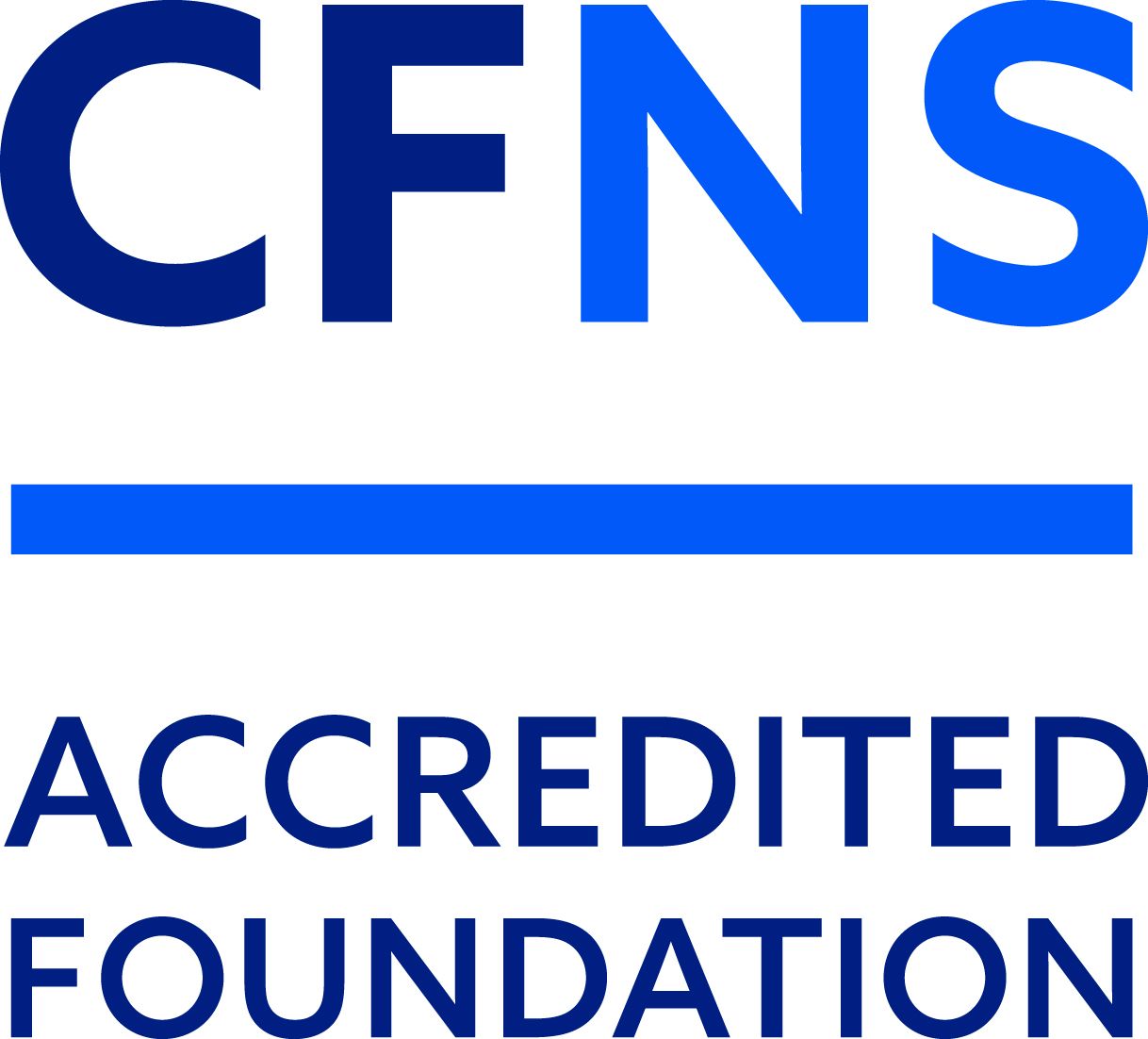FAQ
-
What is the Community Foundation?
The Community Foundation Serving West Central Illinois & Northeast Missouri is a tax exempt, nonprofit, publicly supported philanthropic organization with IRS 501(c)(3) status that encourages philanthropy and creates opportunities to improve the quality of life for present and future generations.
-
When was the Community Foundation founded?
Your Community Foundation was founded on November 26, 1997.
-
What does the Community Foundation do?
Simply put, your Community Foundation gathers, grows, and grants charitable dollars.
It focuses on building permanent support—endowments—for needs and opportunities that matter to you: arts and culture, community betterment, education, health, human services, and more.
It holds those assets in separate funds established by donors: individuals, families, businesses, and charitable institutions. Each fund may have a special purpose, and the Community Foundation’s Board of Directors, representing the community, oversees them.
-
What “community” does the Community Foundation serve?
- It serves 12 counties in West Central Illinois and Northeast Missouri: Adams, Brown, Hancock and Pike in Illinois; and Clark, Knox, Lewis, Marion, Monroe, Pike, Ralls, and Shelby in Missouri.
- In addition to funding local nonprofit organizations, donors may also support regional, national, and international charities through the Community Foundation.
-
What is the total amount of grants distributed?
Since 1997, your Community Foundation has distributed more than $18 million in grants to nonprofits in our region and beyond.
-
What are the Community Foundation’s areas of interest?
Arts & culture, community betterment, education, health, and human services.
-
What is an endowment?
An endowment is set up to produce income for charitable purposes. A typical endowment fund will distribute only the income generated from investments. An endowment fund is likely (though not, of course, certain) to remain permanent as long as principal is not invaded and the distribution rate reflects the long-term growth patterns of investments.
Not all funds with the Community Foundation are endowments. Some donors prefer a greater distribution percentage of their gifts. Donors also use the Community Foundation for various other purposes, including short-term gifts, pass-through grants, and anonymous gifts.
-
What are the Community Foundation’s mission, values, and vision?
Our mission is “Connecting people who care with causes that matter.”
We value the highest ethical standards and stewardship principles, the power of philanthropy to change lives and communities, engaging others in improving the communities we serve, involving all segments of the communities we serve, and defining our goals and measuring the results.
Our vision is to be a leader in improving the quality of life throughout the communities we serve.
-
Why the Community Foundation?
For You: What matters most to you? Your Community Foundation works with you to meet your charitable goals and create a meaningful legacy.
For Your Community: Your gifts through your Community Foundation help support your favorite charity, cause, community, and more.
Forever: Because your Community Foundation focuses on endowment, your gift becomes a permanent asset to ensure funds will always be available to support your charitable interests.
-
Who receives Community Foundation grants?
Grants are made to nonprofit organizations with 501(c)(3) status and to government units for public, charitable purposes. We may also give grants to religious organizations, though the purpose may be restricted depending on the program from which the grant is made. Please see the Nonprofits section for more information on eligible organizations and grants.
-
Why not give directly to the charity I care about?
By all means. Support the charities you care about for their immediate needs and goals. And, when you give through the Community Foundation, you support the commitment to endowment (meaning your gift makes a permanent impact), ability to accept complex gifts, and professional expertise in managing and investing your gift. In some instances, a charity may be doing outstanding work in their mission area but does not have the financial expertise to manage and invest your gift for the best impact.
-
Why entrust my assets to the Community Foundation?
An endowment fund in your name, family name, or that of a loved one is a lasting way to support your favorite charitable organizations, causes, and communities throughout your life and leave a legacy long after you are gone. It is a powerful way to pass on the lessons of philanthropy to your children… and theirs.
The Community Foundation works hard to make giving easy and meaningful for donors and the causes they care about by:
- Accepting a wide variety of gift types that meet its Gift Acceptance Policy;
- Offering many fund types. You can name a fund, advise a fund, or designate an area of interest or specific charity to benefit;
- Handling fund administration. You get the joy of giving while the Community Foundation does the research, paperwork, grant follow-up, and reporting;
- Sharing community needs and opportunities expertise; and
- Endowing funds so that your charitable gift creates a permanent legacy.
-
What is the benefit of having a Community Foundation?
- It helps raise the level of local giving by keeping and building assets in its communities to serve its communities.
- It helps to ensure that charitable endowment gifts will remain effective and relevant now and for future generations. Even as local needs and opportunities vary, the Community Foundation can adapt charitable funds for relevance in a changing community.
-
What services do I receive as a donor?
The Community Foundation provides all IRS reporting, accounting and accountability for the funds (You are still responsible for your own personal tax reporting and should consult your tax advisor). The Community Foundation conducts due diligence to ensure that grant recipients meet the tests for tax-deductible status. When appropriate, the Community Foundation can help donors solicit proposals to fund certain categories of interest to the donor. Donor advisors are kept apprised of special community needs. We can also help donors publicize their funds or, conversely, act as the liaison to provide anonymity for donors.
-
What are the tax advantages of donating to the Community Foundation?
The Community Foundation offers one of the best tax advantages for charitable donations available under law. It is a publicly-supported nonprofit organization, qualified under section 501(c)(3) of the Internal Revenue Code. Since it is not classified as a private foundation, it is able to offer greater tax advantages. For example, there is a higher percentage of adjusted gross income threshold; donations of many types of assets to private foundations are generally limited to cost basis. Donors are encouraged to consult with their tax advisors.
-
What fees does the Community Foundation charge for services it provides?
Funds are charged an annual administrative fee, based on fund type. The fees supply resources necessary to operate efficiently and effectively, ensuring fiscal responsibility in carrying out those services associated with building charitable community assets, educating donors and communities, conducting grantmaking, research, collaboration, and other activities. Fund fees are generally 1-1.5% based on a fund’s type and whether it is endowed.
-
What and how do I give?
Individuals, families, businesses, and charitable institutions make gifts that meet their preferences and goals. The Community Foundation offers a variety of opportunities for giving at many levels.
- You can give any amount at any time to any fund at the Community Foundation. By combining your resources with those of others who share your interests, you can maximize the impact of modest contributions.
- The Community Foundation accepts gifts that meet its Gift Acceptance Policy: cash, securities, real estate, life insurance, retirement assets, commodities such as grain and livestock, and more.
- There are benefits to giving certain property, such as appreciated securities or real estate. Were you to sell the property, a substantial tax on appreciation could be due. When given to the Community Foundation, such gifts are not treated as sold by the donor, thereby avoiding capital gains tax that would otherwise be due if sold. In addition, the donor generally is entitled to a tax deduction equal to the fair market value of the donated asset.
- Giving grain to your Community Foundation lets you avoid including the sale of the grain in your farm income. Although a charitable income tax deduction is generally not available to you, the avoidance of declaring it as income can be a significant benefit.
- If you want to build your own fund, there are several options. For example, you can begin an Acorn Fund with as little as $1,000 and you have up to five years to build it to a named fund with permanent endowed status.
- You may also choose to give through your will or by using other planned giving vehicles.
- The Community Foundation also welcomes gifts specifically designated to support its work as a nonprofit organization.
-
What is the difference between the Community Foundation and private foundations?
The Community Foundation has tax advantages not enjoyed by private foundations. You do not have to form a Board of Directors, make investment decisions, or file an IRS 990 for a fund at the Community Foundation. The Community Foundation takes care of all fund administration, investment, grantmaking, and reporting for the fund. A broad and ever-widening group of unrelated individuals, families, corporations, and institutions contribute to the Community Foundation and its many funds. The one thing that connects donors is a desire to improve local communities.
By contrast, if you as an individual, family, or business form a private foundation, you must have a Board of Directors, establish bylaws, file an IRS PF-990, and more. If the principal endowment is not large, it rarely makes sense to establish a private foundation.
-
What is the difference between the Community Foundation and other nonprofits?
Most nonprofit organizations have a very specific mission. The Community Foundation’s mission is broad: connect people who care with causes that matter. This breadth reflects the ability to build a wide variety of charitable funds and make grants that benefit local communities.
Flexibility also allows the Community Foundation to serve a wider group of potential donors and a wider group of nonprofit organizations and communities.
Area nonprofits benefit because the Community Foundation helps money stay in the region. That means grants for local nonprofits. In addition, many nonprofits have established their own endowments with the Community Foundation.
As it has grown, your Community Foundation has become a center for charitable giving in and for this region. It serves as the bridge that helps make connections between the people who want to give and the charitable organizations, causes, and communities that matter to them.
-
How does the Community Foundation invest its funds?
Its Investment Committee provides direction and oversees multiple advisors and financial institutions who invest in a variety of instruments. They must adhere to the Community Foundation’s Investment Policy established and approved by the Board of Directors.
1. The primary focus is long-term with permanent endowments, which provide charitable grants now and into perpetuity.
2. The Community Foundation must comply with the Uniform Prudent Management of Institutional Funds Act (UPMIFA) summarized in the Component Fund Distribution & Fees Policy and the Investment Policy.
3. In determining grant distributions, the Community Foundation uses a 12-quarter 'look back' to even market volatility to meet the goal of providing a 'steady stream of support' from the charitable funds held here.
-
Can I get my attorney and financial expert involved? How?
Absolutely. The Community Foundation encourages you to work with your advisors—your attorney, accountant, banker, financial planner, or insurance representative. Professional advisors are vital in growing philanthropy in our communities. Please have them contact us to ensure we can meet your charitable goals.
-
What standards or credentials is the Community Foundation held to?
Your Community Foundation has earned the National Standards® seal from the Council on Foundations for attaining the highest standards of grant making integrity and standards.
The National Standards for U.S. Community Foundations® is an accreditation program created by community foundations for community foundations. They are peer-driven, voluntary, and self-regulatory.
Your Community Foundation is also a gold-level GuideStar participant, demonstrating its commitment to transparency.



